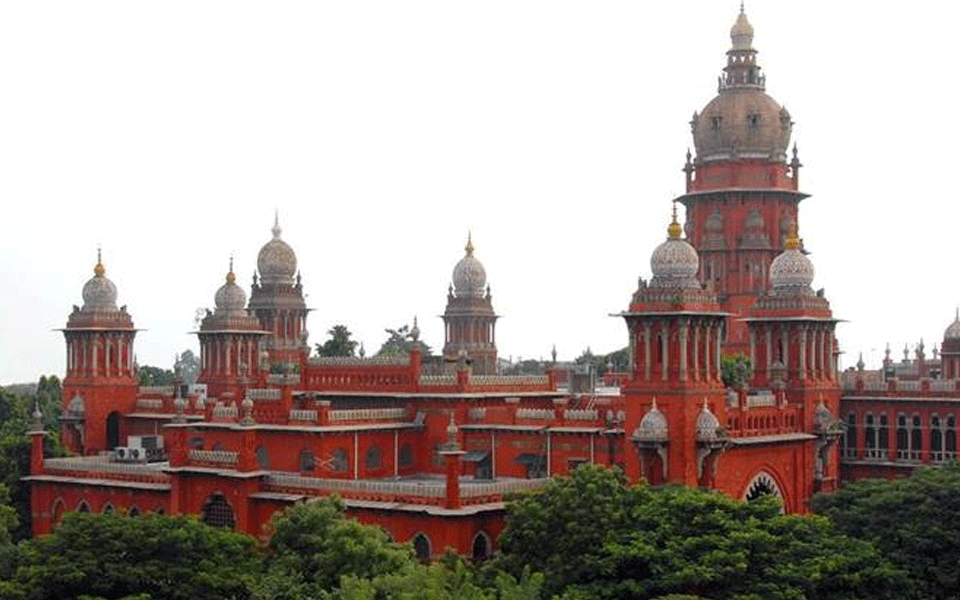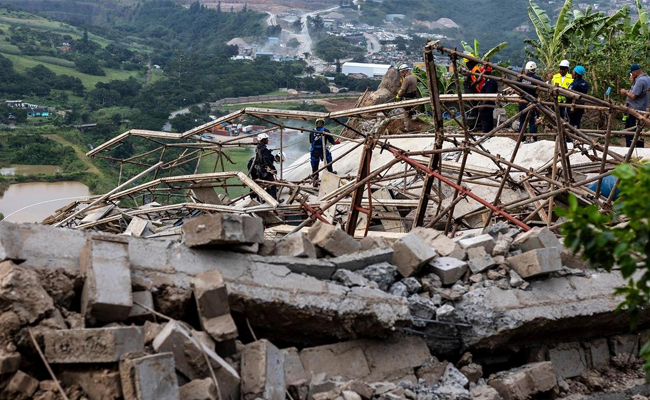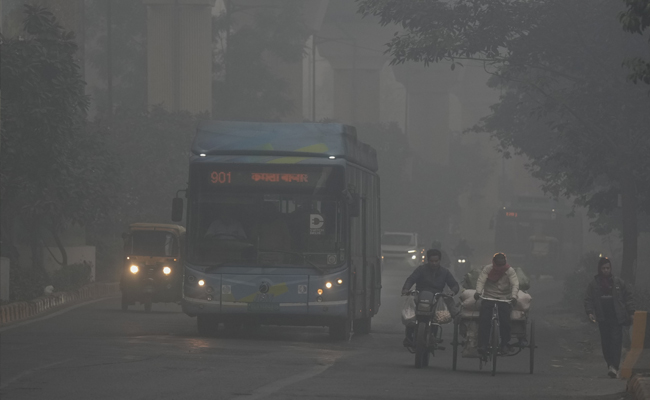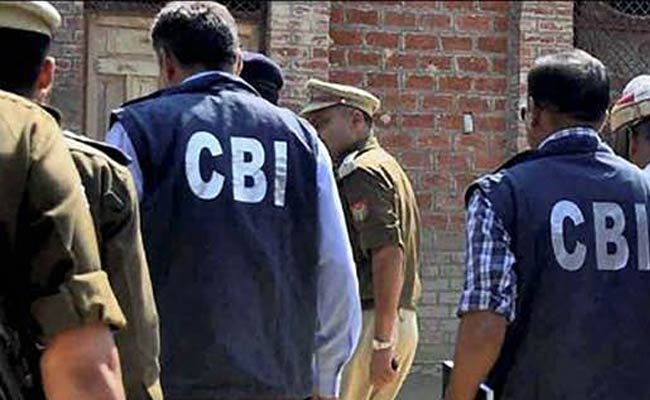Chennai, Oct 5 : A PIL has been filed in the Madras High Court against the ordinance that makes the practice of instant 'triple talaq' a punishable offence, contending that it violated the Constitution and was discriminatory.
When the public interest litigation petition by Hussain Afroze, an advocate of the high court, came up for hearing, a bench comprising justices S Manikumar and P T Asha directed the counsel, who appeared for the Centre, to get instructions and posted it to October 22.
The petitioner challenged clauses 4-7 of the Muslim Women (Protection of Rights on Marriage) Ordinance, promulgated on September 19, and sought to declare the ordinance as ultra vires.
He also sought an interim injunction on the ordinance.
Already, the Kerala-based Muslim organisation Samastha Kerala Jamiyyathul Ulama has moved the Supreme Court challenging the ordinance.
Instant triple talaq, also known as talaq-e-biddat, is an instant divorce whereby a Muslim man can divorce his wife by pronouncing 'talaq' three times in one go.
Under the ordinance, instant triple talaq has been declared illegal and punishable with a jail term of three years for the husband.
In the present PIL, the petitioner has submitted that under the Muslim Personal Law, a marriage was a civil contract and this position has been recognised under the Shariat Act 1937 and in various judicial pronouncements.
Referring to the apex court's judgement in the Shayara Bano case on triple talaq, he said the court in its majority judgment emphatically declared the practice was invalid and the marriage does not stand dissolved on its pronouncement. The judgement is the law of the land as its stands today.
The pronouncement of triple talaq is otiose, he said, adding there was no legal justification for imposing a punishment upon an utterance which has no legal validity and does not inflict any injury -- legal or otherwise.
The petitioner said the government argued that the ordinance was being brought since the practice of triple talaq continued despite the Supreme Court order holding it unconstitutional and invalid.
Clause 3 of the ordinance invalidates triple talaq whereas Clause 4 stipulated penal consequences of up to three years imprisonment.
For an act to become a crime, there must be an injury caused to an individual or to the society at large, he said, adding since triple talaq does not dissolve a marriage, the imposition of punishment under Clause 3 of the ordinance "smacks of mala fide and arbitrariness."
He further submitted that since Muslim marriage was a contract, the law of the land would stipulate damages as relief in the event of any breach.
Hence, transforming a civil dispute into an act of criminality and with penal consequences on the people who profess a particular religion was illegal and discriminatory, he contended.
The ordinance was Muslim-centric and clearly hit by the provisions of Article 14, 15 of the Constitution, he submitted, seeking it be quashed.
In a landmark verdict, the Supreme Court on August 22 last year had set aside the 1,400-year-old practice of instant 'triple talaq' among Muslims on several grounds, including that it was against the basic tenets of the Quran and violated the Islamic law Shariat.
Let the Truth be known. If you read VB and like VB, please be a VB Supporter and Help us deliver the Truth to one and all.
Johannesburg (PTI): A 52-year-old Indian-origin man is among four people killed after a four-storey Hindu temple under construction collapsed in South Africa's KwaZulu-Natal province, officials have said.
The New Ahobilam Temple of Protection, situated on a steep hill in Redcliffe in north of eThekwini (formerly Durban), was being expanded when a section of the building gave way on Friday while workers were on site.
The exact number of workers and temple officials believed to be trapped beneath tonnes of rubble is unknown.
While two people, a construction worker and a devotee, were confirmed dead on Friday, the death toll rose to four on Saturday after rescue teams recovered more bodies.
Of the four deceased, one has been identified as Vickey Jairaj Panday, an executive member of the temple trust and manager of the construction project, local media reported, quoting officials.
Panday had been deeply involved in the development of the temple since its inception nearly two years ago, the reports said.
Sanvir Maharaj, director of Food for Love, a charity affiliated to the temple, also confirmed that Panday was among those who had died.
Rescue workers, who spent two days trying to recover a fifth body that had been located, had to suspend operations on Saturday afternoon due to inclement weather, Reaction Unit South Africa spokesperson Prem Balram told local media.
“At this stage, it cannot be confirmed whether additional individuals remain trapped beneath the rubble,” he said.
The temple was designed to resemble a cave, using rocks brought from India and excavated on site, and the family building the structure had claimed that it would house one of the world's largest deities of Lord Nrsimhadeva.
The eThekwini municipality, in a statement, said no building plans had been approved for the project, suggesting the construction was illegal.
Initial rescue efforts had been guided by cellphone calls from one of the trapped persons, but communications ceased late Friday evening, officials said.
KwaZulu-Natal Provincial Minister for Cooperative Governance and Traditional Affairs Thulasizwe Buthelezi visited the site on Saturday and pledged that rescue operations would continue for as long as necessary, even as experts noted that there was little hope of finding more survivors.
Buthelezi expressed gratitude to the combined government and private teams involved in the search and rescue operation, including a special dog unit from the Western Cape.





